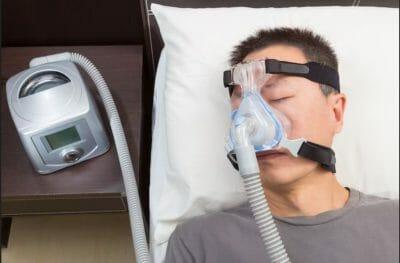Are you planning to travel but worried about how to manage your CPAP machine? Don’t worry! This comprehensive guide from Repshop will provide you with useful tips for traveling with your CPAP machine domestically and internationally. Whether you’re traveling by air or sea, these tips will help you pack your machine, use it on a cruise ship, and find CPAP-friendly accommodations abroad.
Tips for traveling with a CPAP machine domestically and internationally
1. Check with your airline or cruise ship for their CPAP policy. Most airlines and cruise ships allow passengers to bring CPAP machines onboard, but you may need to notify them in advance.
2. Get a letter from your doctor that explains why you need to travel with a CPAP machine. This can be helpful if you encounter any issues during your travel.
3. Bring extra CPAP supplies, such as masks, hoses, and filters, in case you lose or damage any parts during your trip.
4. Pack your CPAP machine in a sturdy, protective case to prevent damage during transport.
5. Consider purchasing a portable CPAP machine for travel. These machines are smaller and lighter than traditional CPAP machines, making them easier to transport.
How to pack your CPAP machine for air travel?
1. Pack your CPAP machine and accessories in your carry-on bag to ensure that they arrive safely at your destination.
2. Remove the humidifier chamber from your CPAP machine and pack it separately in your checked luggage.
3. Label your CPAP machine and accessories with your name and contact information in case they get lost or misplaced.
4. If you’re traveling internationally, bring a universal power adapter to ensure that you can plug in your CPAP machine in any country.
Tips for using your CPAP machine on a cruise ship
There are some tips that can be useful during your travel:
1. Contact your cruise line in advance to request a CPAP-friendly cabin. These cabins are typically located near electrical outlets and have extra space for CPAP machines.
2. Bring an extension cord or power strip in case the electrical outlets in your cabin are not conveniently located.
3. Consider bringing distilled water for your humidifier chamber, as the water on cruise ships may be high in minerals and cause mineral buildup in your machine.
How to find CPAP-friendly accommodations abroad?
You may not have to sacrifice peaceful nights just because you’re away from home. Consider renting a CPAP machine for your travels! Our company even offers rentals starting at just $29 a month, so you can reap the therapeutic benefits without breaking the bank. Don’t let sleep apnea hold you back from your wanderlust – rent a CPAP machine and sleep easily on your adventures! But there are some tips you can to take into account:
1. Check with your hotel or vacation rental before booking to ensure that they have electrical outlets and can accommodate CPAP machines.
2. Bring a universal power adapter to ensure that you can plug in your CPAP machine in any country.
3. Consider using a travel CPAP machine for international travel, as these machines are often smaller and lighter than traditional CPAP machines.
In conclusion
Traveling with a CPAP machine doesn’t have to be stressful. By following these tips, you can ensure that your machine arrives safely at your destination and that you can use it comfortably throughout your trip. Remember to always check with your airline, cruise ship, or accommodation before traveling to ensure that they can accommodate your CPAP machine.
FAQs:
Do I need to notify my airline or cruise ship that I’m traveling with a CPAP machine?
1. Yes, it’s a good idea to check with your airline or cruise ship in advance to ensure that they can accommodate your CPAP machine.
Can I pack my CPAP machine in my checked luggage?
2. It’s recommended to pack your CPAP machine in your carry-on bag to ensure that it arrives safely at your destination.
Do I need a universal power adapter for my CPAP machine?
3. If you’re traveling internationally, it’s a good idea to bring a universal power adapter to ensure that you can plug in your CPAP machine in any country.
